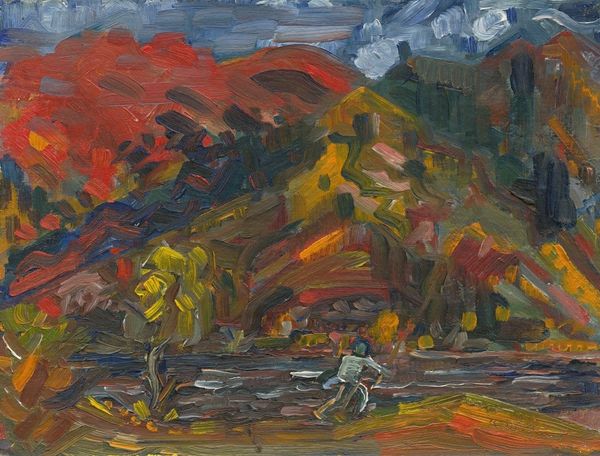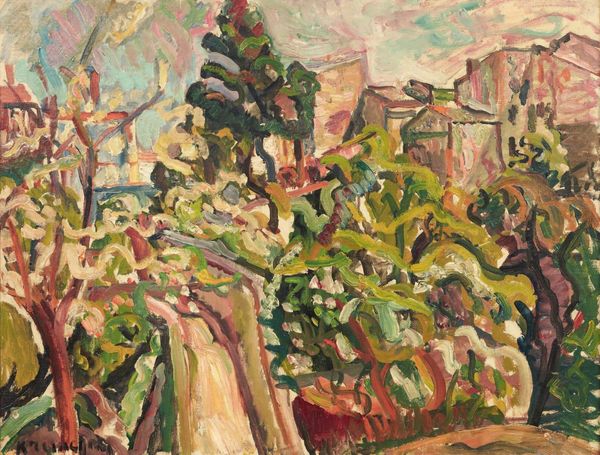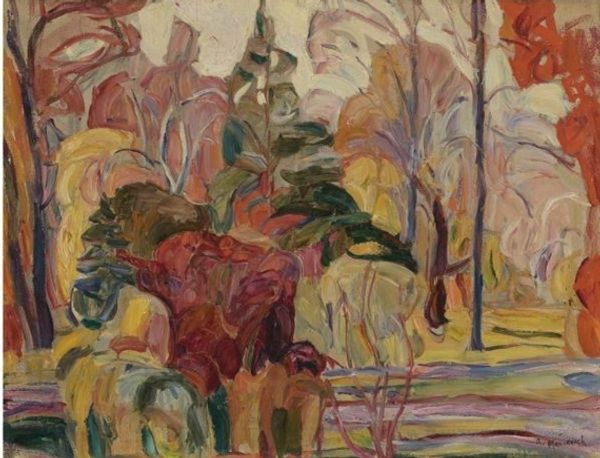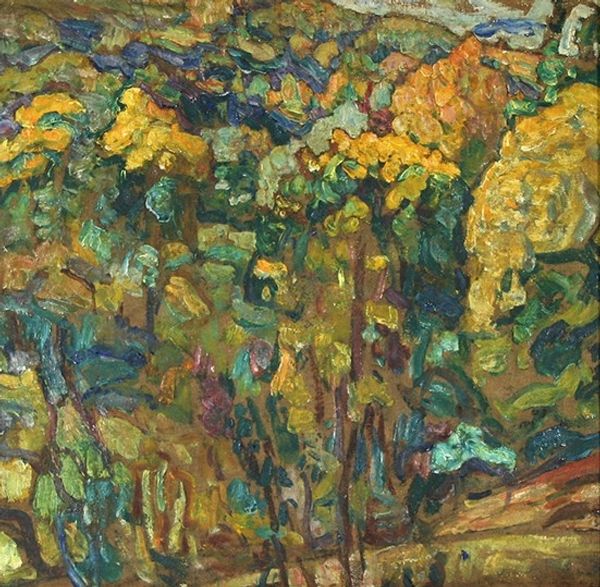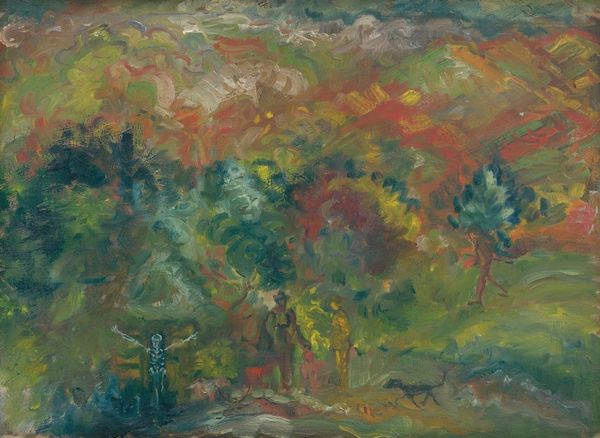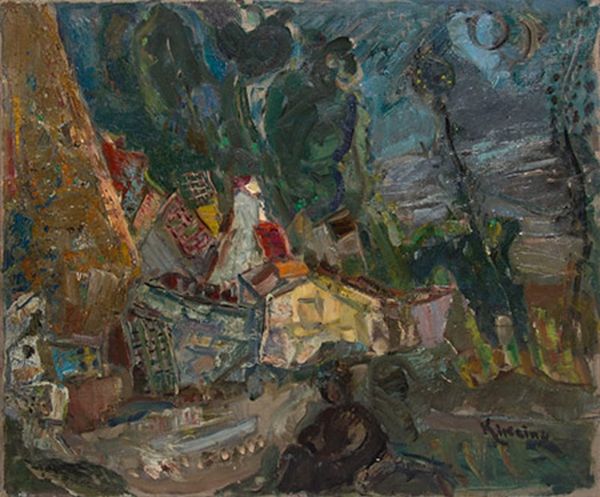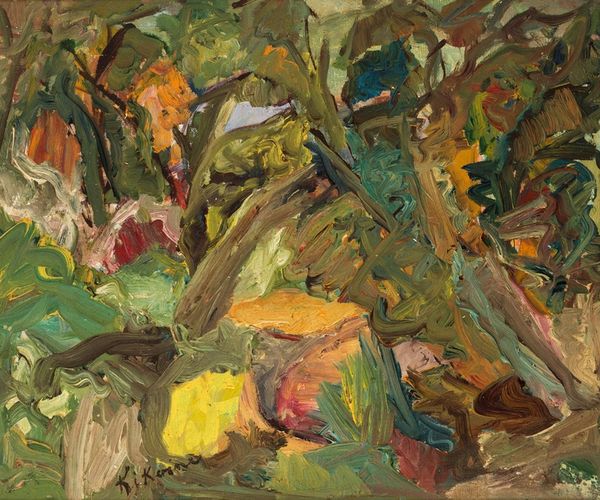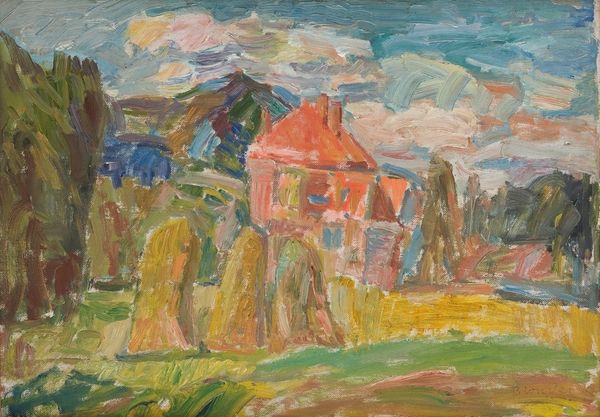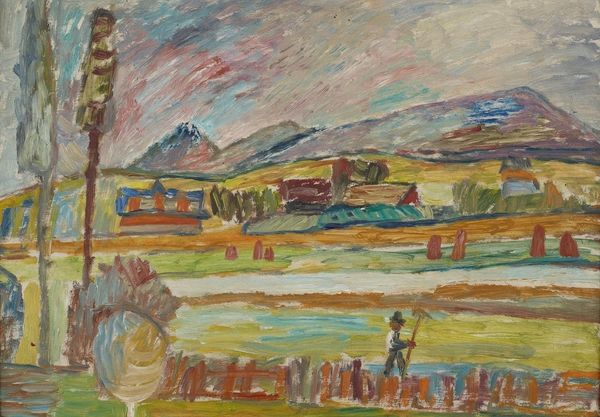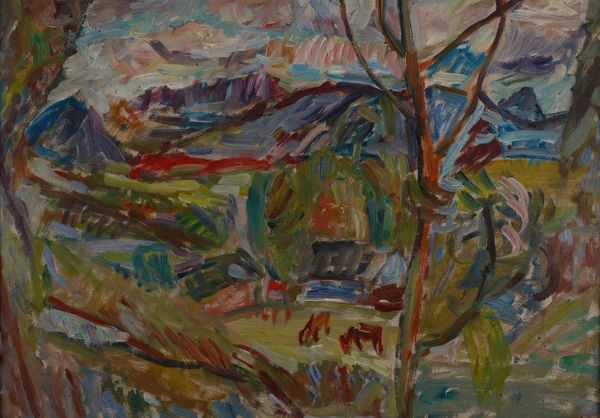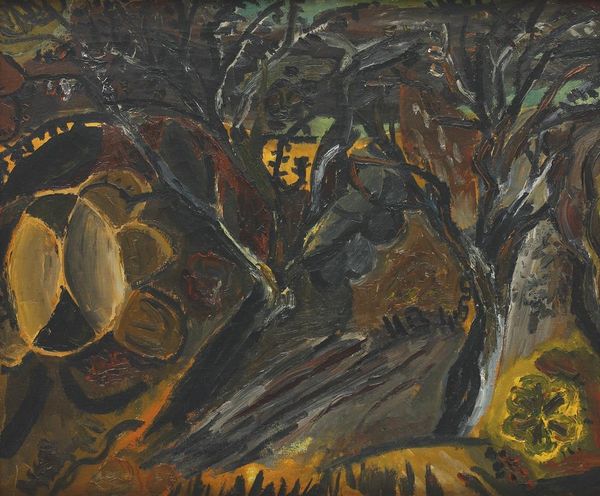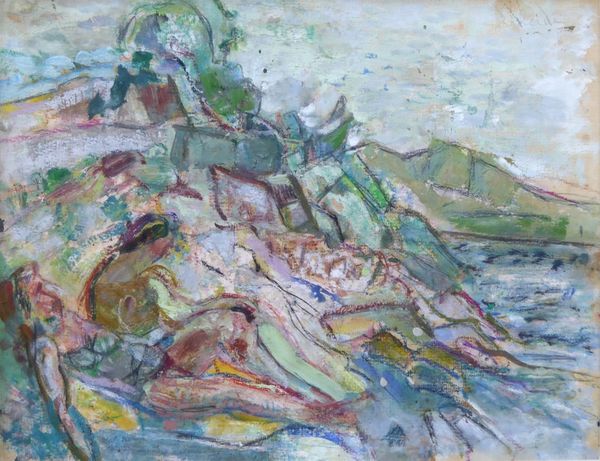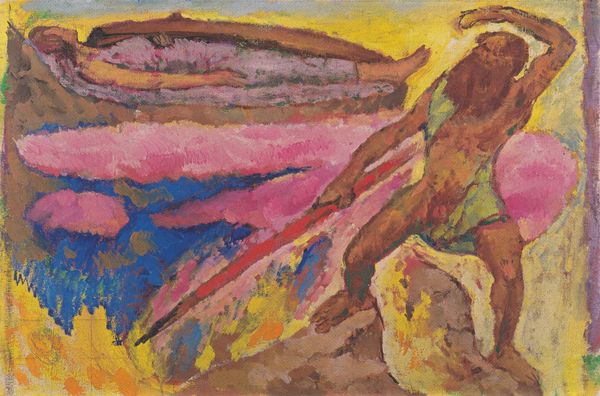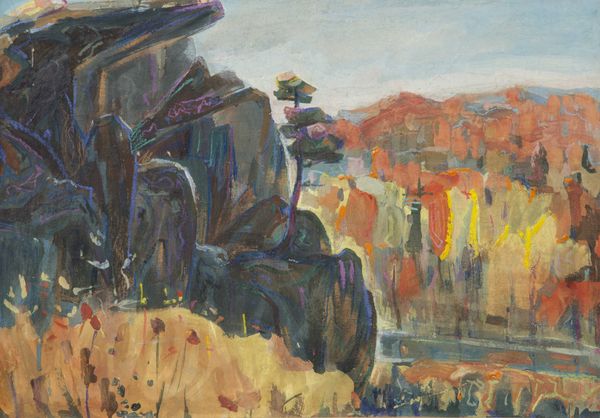
painting, oil-paint
#
abstract-expressionism
#
abstract expressionism
#
abstract painting
#
painting
#
oil-paint
#
landscape
#
german-expressionism
#
oil painting
#
abstraction
Copyright: Public domain
Curator: I find myself drawn to this vibrant oil painting, "Untitled" by Abraham Manievich. Editor: The energetic brushstrokes immediately caught my eye, the almost Fauvist color palette just vibrates. I wonder what state of mind the artist was in, channeling this level of restless expression? Curator: Manievich, who worked roughly in the first half of the 20th century, was exploring a fascinating intersection between landscape and abstraction. We can consider his background, including the artist's immigrant experience coming to the US during turbulent geopolitical upheaval, and ask ourselves about the influence that this biography may have had on Manievich's art. Editor: Yes, and it feels so prescient today! Looking at the layering of colors and almost violent application of paint, the artist appears to be representing something more internal. Perhaps a sense of the world being fractured, an anxious representation of landscapes rather than the more traditional idyllic views? What purpose do you think abstraction serves? Curator: It certainly offered him the possibility to explore feelings and ideas indirectly. Many other artists in this era similarly felt that realistic representational styles no longer fit an adequate view of the world and sought a form language that allowed for experimentation and an ability to capture, at times, multiple perspectives or viewpoints, both material and emotional. Editor: Exactly. Thinking about viewers engaging with this piece today, how does this artistic choice resonate within current discussions around identity and displacement? It provides a rich point of departure. Curator: This particular painting serves as a crucial testament to a shifting artistic landscape—reflecting not only a personal journey, but also larger socio-political transformations and anxieties that artists grappled with. It certainly complicates simplistic notions of belonging and visibility within art history itself. Editor: Agreed. This intense abstraction becomes an accessible space for dialogue, opening pathways toward difficult conversations through an image that speaks to personal and collective challenges. The use of abstraction becomes, paradoxically, very concrete! Curator: Ultimately, in surveying the available accounts that contextualize the artwork, we are compelled to reconcile how it still moves people on a very intimate level. Editor: Very true. I walk away feeling a certain catharsis in its unbridled emotion, and inspired by its possibilities to spark something new.
Comments
No comments
Be the first to comment and join the conversation on the ultimate creative platform.
